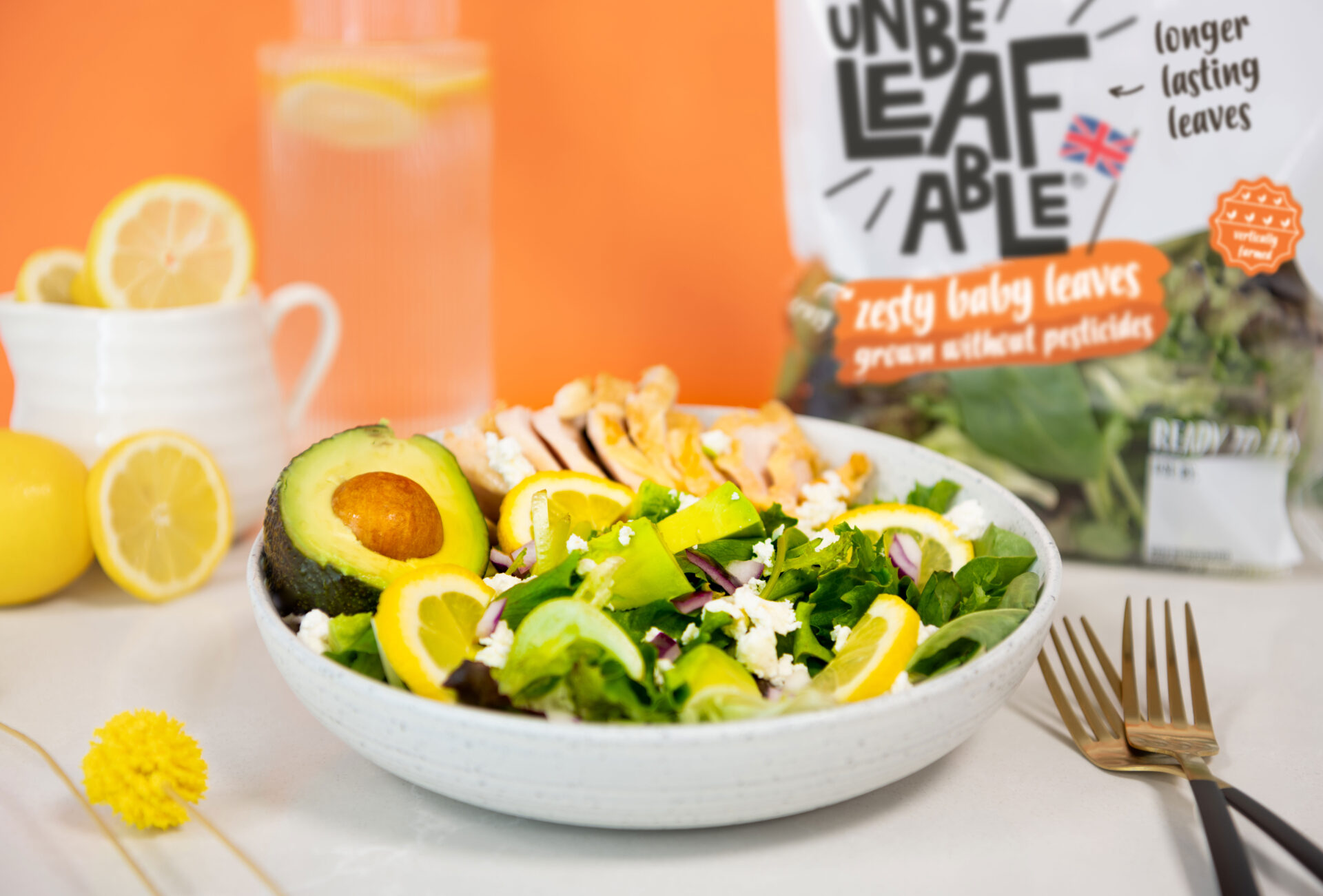As “survivors” begin to emerge from the recent vertical farming market correction, one company to keep an eye on is UK-based Grow Up Farms, which recently banked a £38 million ($50 million) investment from Generate Capital.
Like others, Grow Up Farms grows leafy greens indoors via vertical farming. It has so far managed to avoid the sky-high energy costs associated with vertical farming by co-locating its farm next to a biogas operation and running off 100% renewable energy.
“We benchmarked across all the vertical farming operators in Europe and found that Grow Up had a very unique approach,” Eduardo Clemente, managing director on Generate’s European investment team, tells AgFunderNews.
Generate focuses specifically on sustainability infrastructure, providing both capital and operational expertise to companies. The firm invests in and operates assets across six sectors: power, mobility, waste, green digital, water and agriculture, and industrial decarbonization.
There have been “a lot of lessons learned” in vertical farming over the last few years, says Clemente, who at the same time suggests there’s plenty of reasons to be optimistic about the sector thanks to Grow Up Farms and others.
AgFunderNews (AFN): In which areas does Generate typically invest?
Eduardo Clemente (EC): We’ve been very active in areas like energy storage, energy efficiency, community solar, biogas, etc. We provide not only the capital but also the operational expertise to help our companies develop and grow their process.
We typically focus on sectors that have proven technologies but need support and funding to scale. Over time, of course, those areas become more mainstream as they scale up and receive more investment from other investors, but Generate helps accelerate their growth.
For example: energy storage. When we made our first investment in this area, we were pioneers. We established the first electric bus leasing structures, the first hydrogen fuel cells program, one of the largest biogas platforms in North America.
As some of those areas eventually become more mainstream, we are in a constant search for new areas of emerging themes where the technology is proven but is not as well understood by the mainstream community.
AFN: Why invest in indoor farming?
Within agtech and controlled environment agriculture [another name for indoor crop farming], we believe there is an opportunity and a better way to grow in a more sustainable, local way.
It’s an area we have been researching for three or four years in North America. We have chosen to support Better Future Farms, a greenhouse developer and operator in North America. And in the UK, we are supporting the vertical farm proposition with GrowUp Farms.
Our first investment with Grow Up was back in 2021.

AFN: Why did Generate choose to back Grow Up farms?
We benchmarked across all the vertical farming operators in Europe and found that Grow Up had a very unique approach. The company combines a very strong team with an agricultural background and project delivery and came up with a solution that enables producing at scale with affordable prices for consumers backed by renewable energy onsite.
Since our first investment, the company has managed effectively to deliver on what they said. We have been now on the shelf with the largest UK retailers for effectively more than a year and we’re bringing this additional investment to help support the company in growing more capacity, as there’s significant room to expand and to develop R&D, and build on the two brands that we have with Tesco, Iceland and other retailers.
AFN: What stood out about Grow Up versus other vertical farming companies?
Without naming names, a lot of the opportunities we saw rely on selling a premium product, which corresponds to a relatively small portion of the overall salad market.
The challenge of that is that building a vertical farm requires a significant investment upfront. It’s typically fairly capital intensive. And it requires significant energy. The combination of the two means that in order to be able to reach reasonable payback, you need to achieve high volumes. In order to achieve high volumes, you need to produce at a cost that is competitive with the mass market.
Grow Up, because of their approach to energy and being co-located next to a biogas plant, means they not only benefit from renewable electricity but also renewable heat in a very efficient way. This allows them to reduce the cost of the product, produce at scale and also sell at prices effectively competitive with traditional agriculture. So, we then do not need to go to the equivalent kind of high-end consumer brands or retailers we can go to the mass market. In fact, the first retailer we launched with was Iceland, which is in the of mid- to mid-low segment.
AFN: From your perspective, what does the future of vertical farming look like?
There have been a lot of lessons learned from the last few years, and there have been very different approaches to vertical farming. Some players decided to build completely new technology from scratch. Others decided to grow a wide range of different produce.
Both of those add a lot of complexity into the proposition. Vertical farming is already fairly complex because you are producing and ideally selling directly to the retailer. If on top of that you need a lot of knowledge of tech development in-house, or a lot of knowledge of different crops, you just add a lot more complexity.
In the case of Grow Up and other companies that have emerged as survivors of [the first] wave, there is a common theme of focus. We are currently focused on the UK, focusing on what we have a track record of delivering, which is leafy greens, and trying to optimize those parts of the business. Then we can expand capacity, capture more market share, and potentially look for other sites in the UK appropriate for building a vertical farm.
The opposite of that is uncontrolled growth, which maybe was part of the result of very successful equity raises. The last 12 to 18 months have seen a downturn for vertical farming, but the previous 12 months were a booming market.
I think this is what differentiates those that are effectively thriving right now. It’s going to be good for the market to see why Grow Up and others are doing well now.





